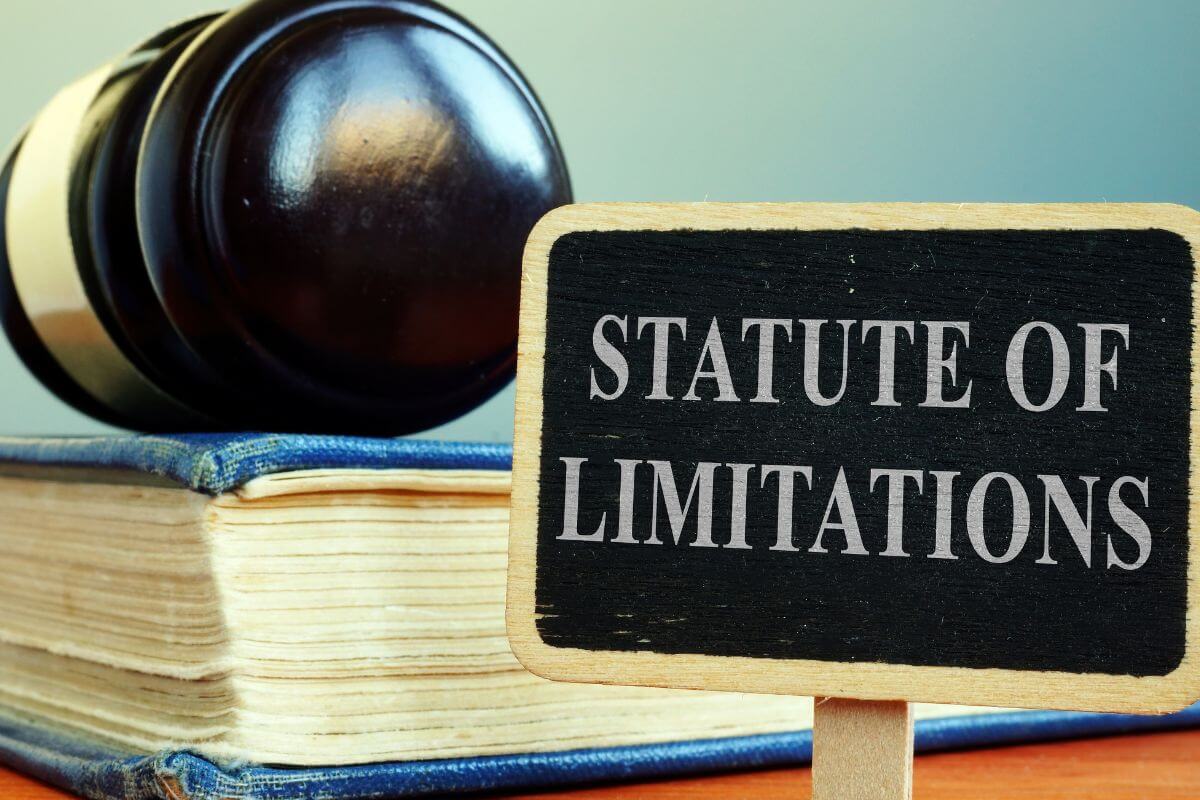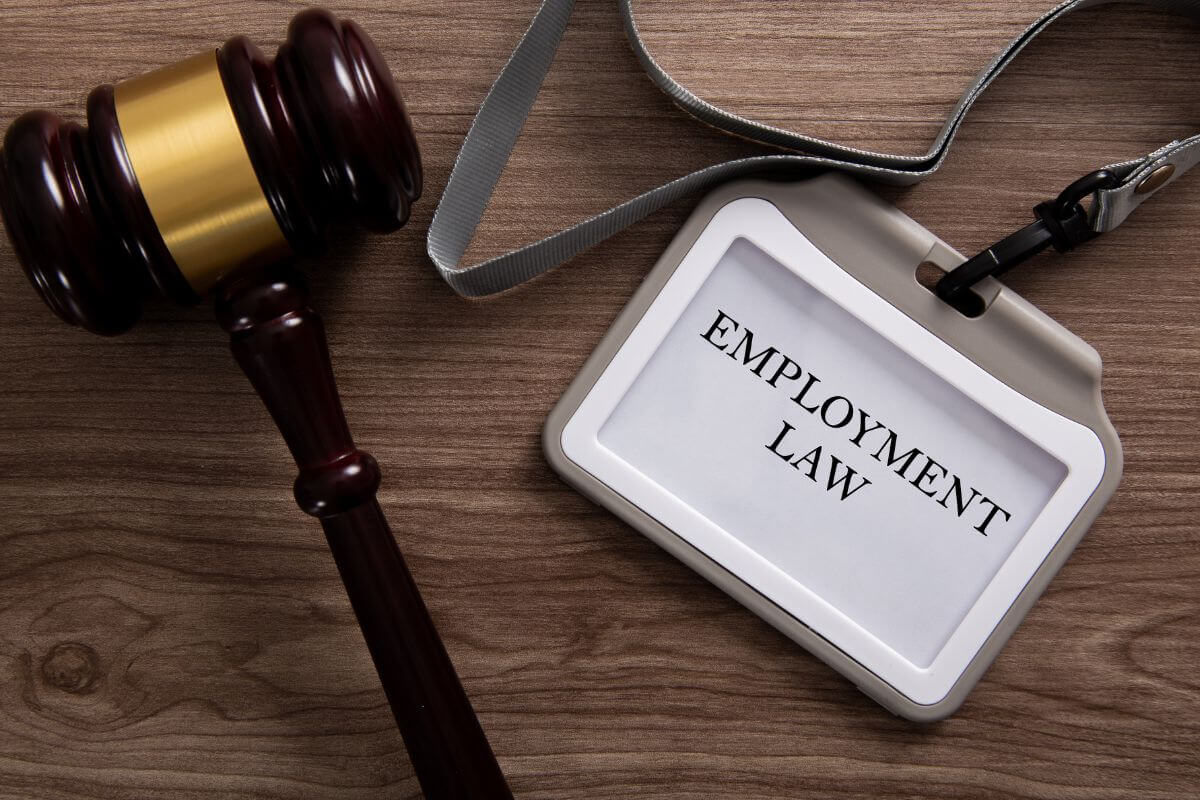Not sure where to start in familiarizing yourself with Montana’s state laws? Well, fret not, because this article has got you covered.
I’ll walk you through the essential Montana laws you should know, covering several consumer laws, tax laws, employment laws, education laws, and family laws on the way.
So don’t worry about traveling in a foreign country and abiding by its laws. We will try our best to cover everything you need to learn here.
Avoid making mistakes in Montana that could cost you or worse, put you behind bars.
Whether you’re a new traveler to Montana or a seasoned explorer, this guide is designed to help you navigate Montana’s laws with ease.
I have gone through and thoroughly researched all of the important Montana laws. So buckle up and let’s dive into the world of Montana laws together.
What Comprises Montana’s Laws?

The U.S. Constitution is considered as the supreme law of the land and all other states automatically become subject to its laws.
Federal laws, on the other hand, are periodically codified statutes, law interpretations in court, and regulations made by federal agencies.
Montana residents are subject to Montana state laws, U.S. federal laws, and the U.S. Constitution altogether.
But when it comes to daily life in Montana, the Montana Code Annotated (MCA) includes laws that are passed by the Montana State Legislature, consisting of both the Montana House of Representatives and the Montana Senate.
It includes the state’s constitution and all of its state laws, also known as statutes as well.
Whenever a bill is passed by the legislature and signed by the current governor, it is then included in the MCA. This is updated at the end of each legislative session.
Another important component of the legal system in Montana is the Montana District Court which handles all legal matters ranging from different civil and criminal cases.
Montana Statutes of Limitations

Legal actions against civil and criminal cases can extend for years on end if no limit is imposed in a legal system. This is why Montana has incorporated a statute of limitations to keep its system efficient and effective.
With a statute of limitation in place, the amount of time that a legal action can be taken by a person against another party is given a limit. This may vary from case to case.
A reasonable time frame maintains the integrity of evidence and proof presented in court and also avoids the threat of lawsuits from going on indefinitely.
There are of course exceptions to these time limits, such as when a plaintiff is a minor when the injury happened or when the defendant is in prison or not in the state.
In such cases, the statute of limitations may be extended.
Civil Statute of Limitations

In Montana, specific Civil Statutes of Limitations exist and the time frame for filing a civil action in the state typically ranges from 2-3 years. This can however change depending on the nature of the claim.
For example, a personal physical injury due to a car accident gives you 3 years from the date of the accident to file a claim or request for legal proceedings against the responsible party.
Similarly, contract disputes and property damage claims also follow the same time limit of three years. It’s crucial to note that if you fail to file a claim within this time frame, you may lose your right to pursue legal action altogether.
But there’s more. Actions for collection on the value of a court judgment carry a ten-year limit in Montana.
For instance, if you’ve won a court judgment in your favor but the other party has refused to pay, you’ll have ten years from the date of the ruling to collect on the value of the judgment.
If you’re considering filing a claim or starting legal proceedings, it’s often wise to hire a lawyer. A qualified attorney can advise you on the relevant Civil Statute of Limitations and how to proceed within the given time frame.
Remember, the consequences of not filing a claim within the specified time limit can be costly and detrimental.
Criminal Statute of Limitations

In Montana, all misdemeanors carry a 1-year statute of limitations. This means that if you’ve been a victim of a misdemeanor crime, you have just one year from the date of the incident to file a legal case against the perpetrator.
On the other hand, felonies are a bit more complicated. In Montana, the time limit for rape is 10 years, or 10 years after the victim reaches 18 years of age.
For most other felonies, the time limit is set to five years. Keep in mind that exceptions exist and the time limit may vary based on the type of crime.
But what exactly happens when the statute of limitations has expired? In some cases, the clock may stop ticking or even restart courtesy of a concept called tolling the statute of limitations.
This essentially means that the time period may pause or extend based on certain circumstances, such as the plaintiff’s age or the defendant’s bankruptcy.
In high-profile cases, tolling may come into play, allowing more time to investigate and prosecute the crime. It’s important to note that tolling is not an automatic process and requires a court order.
Montana Criminal Laws

Montana has a very comprehensive list of criminal laws. All of which is punishable by both state and federal statutes. Montana criminal laws include:
- Domestic Violence Laws – Montana criminal laws include domestic violence laws that focus on protecting individuals from violence at home that may come in various types including physical, emotional, and psychological abuse.
- Identity Theft Laws – Montana state and federal laws provide extensive protection against identity theft. Theft is defined as the fraudulent use of another person’s personal information.
- Rape and Sexual Assault Laws – Montana has a strong opposition against rape and sexual assault. Rape is defined as non-consensual sexual intercourse, while sexual assault encompasses a broader range of unwanted sexual activity.
- Marijuana Laws – Marijuana use and possession are prohibited under federal law. However, the state allows medical marijuana use for persons with qualifying conditions and is subject to certain regulations.
- Credit and Debit Card Fraud Laws – Any act that involves the unauthorized use of another person’s payment information is punishable by state and federal laws in Montana.
Montana Accident and Injury Laws

Accidents happen unexpectedly regardless of caution and location. Let’s understand how Montana addresses incidents like this. Here’s a comprehensive overview of Montana’s Accident and Injury Laws:
- Negligence Law – Montana follows a comparative negligence law. Even if a party is at fault, they can still claim for damages but this may limit their compensation according to the gravity of their negligence.
- Car Accident Compensation Laws – Montana requires all its drivers to carry liability insurance, which covers damages caused in an accident. Whenever this insurance is deemed insufficient, victims may file a claim under their own policy.
- Workers’ Compensation Laws – Montana requires employers to carry workers’ compensation insurance to cover medical expenses, lost wages, and rehabilitation costs when an accident occurs in the workplace.
- Pain and Suffering Damages in Montana – While Montana allows for pain and suffering damages in personal injury cases, they are often more difficult to obtain than economic damages like medical expenses and lost wages.
- Montana Asbestos Regulations – Montana has strict regulations regarding asbestos-containing materials. Property owners are required to identify and manage asbestos in buildings, and contractors working with such materials must have specialized licenses.
Montana Business Laws

Montana makes for a great place for businesses to thrive and as such, Montana Business Laws are an important part of this discussion. So let’s dive into what they cover:
- Deceptive Trade Practices Laws – Montana’s Deceptive Trade Practices Laws protect consumers from false advertising, fake testimonials, and fraudulent business practices.
- Interest Rates Laws – Montana Interest Rates Laws govern the maximum amount of interest that can be charged on loans and credit.
- Pyramid and Ponzi Scheme Laws – Pyramids and Ponzi schemes are illegal in Montana. These schemes involve the promise of high returns for investing money, but they are unsustainable and eventually collapse, leaving investors penniless.
- Antitrust Laws – Montana’s Antitrust Laws prevent monopolies and other unfair business practices such as price-fixing, bid-rigging, and market allocation.
Overall, Montana Business Laws cover a wide range of topics. Anyone looking to start or grow a business in Montana should make sure they are familiar with the Montana Code Annotated and seek legal counsel when necessary.
Montana Consumer Laws

A huge part of the population relies on consumer protection laws to ensure their safety and well-being.
Montana, in particular, has a reputation for having some of the strongest consumer protection laws in the country. So, what exactly do Montana Consumer Laws cover? Let’s take a look:
- Lemon Laws – Montana’s Lemon Law protects consumers who purchase defective vehicles. Under this law, the manufacturer must provide a replacement or refund for a vehicle that is found to have a defect after a buyer’s reasonable number of attempts to fix it.
- Product Safety Laws – Montana Product Safety Laws protect consumers from potential harm caused by unsafe products. These laws require manufacturers to provide adequate warnings and test their products before they hit the market to ensure they are safe for consumers to use.
Montana Consumer Laws, including the Montana Consumer Protection Act, are designed to level the playing field between businesses and consumers.
Montana Education Laws

Let’s tackle some laws governing education in the state:
- Compulsory Education Laws – Montana’s compulsory education laws require children between the ages of 7 and 18 to attend school regularly. This ensures that children are able to get quality education to help them succeed.
- School Prayer Laws – This law protects all students, regardless of their religious beliefs, and ensures that public schools remain neutral on matters of religion. Prayer is permitted in a school, on school grounds, and at school-sponsored events, but a person may not be compelled to pray.
- Corporal Punishment Laws – This law prevents the use of physical force as a form of discipline in schools. It promotes a safe and healthy learning environment for all students and protects them against abuse under the guise of discipline.
- School Records Privacy Laws – Montana’s school records privacy laws protect the privacy of student records and ensure that they are only accessible by authorized personnel. Parents or guardians of the student also have the right to access and review these records.
Montana’s education laws protect students and ensure they have equal access to education, regardless of their socioeconomic status or personal beliefs.
Montana Gambling and Lottery Laws

Montana has its own set of Gambling and Lottery Laws. Here is what you need to know about them:
- Gambling Laws – Montana’s gambling activities are regulated under the state’s gambling laws. Generally speaking, all legalized gambling within the state of Montana is limited to: poker, keno, bingo, and video line gambling machines with a maximum $2 bet and $800 payout.
- State Lottery Laws – Montana has its own set of state lottery laws. These laws dictate how the state’s lottery operates, including how much money is allocated to prize pools, how often drawings take place, and who is eligible to participate.
Montana Family Laws

Here’s an overview of Montana Family Laws that you should be aware of before making any significant decisions in the state related to familial relationships.
- Montana Divorce Laws – Montana is considered a “no-fault” state, meaning that a couple can have a divorce without the need for any reason. However, there are still legal steps that need to be followed, such as dividing marital property, determining child custody, and setting child support payments.
- Montana Adoption Laws – In Montana, adoption laws are designed to ensure that the best interests of the child are protected, while also considering the wishes of the biological parents and potential adoptive parents.
- Montana Protective Orders Laws – Montana has laws that allow individuals who feel threatened or in danger to get a protective order. These orders can be issued to prevent contact between individuals and to require someone to leave a shared home or location.
- Montana Child Custody Laws – Montana child custody laws aid in determining the legal and physical custody of children, as well as how parenting time will be divided between the parents.
- Montana Marital Property Laws – Montana is an “equitable distribution” state which means that marital property is to be divided in a way that is fair but not necessarily equal.
These laws are designed to protect the best interests of individuals and families, but they can also be complex and difficult to navigate without legal guidance.
Montana Employment Laws

Finding and maintaining employment can be an important aspect of settling down in a new place. In Montana, employment laws are enforced to protect workers’ rights and ensure workplace safety.
Let’s take a closer look at what these regulations cover.
- Whistleblower Laws – Montana has laws that protect employees who report illegal activities committed by their employers. These laws prohibit retaliation against whistleblowers and provide remedies for violations.
- Legal Holidays Laws – Montana has a law that requires certain businesses to provide employees with paid time off for legal holidays. This law specifies which holidays are covered and which employees are eligible.
- Right to Work Laws – Montana is a “right to work” state, meaning that employees cannot be required to join a union or pay union dues as a condition of employment.
- Overtime Laws – Montana requires employers to pay employees overtime for any hours worked over 40 in a workweek.
- Wage and Hour Laws – Montana has laws that specify the minimum wage, the maximum hours an employee can work, and the requirements for meal and rest breaks.
These benefits can be crucial in the case of an injury or job loss and employers are required to comply with the rules and regulations set by the Montana Department of Labor & Industry.
Pay frequency, break periods, and child labor laws are also important considerations for employers in Montana.
Montana Property and Real Estate Laws

A wide range of topics related to the ownership, rental, leasing, and sale of property and buildings are also covered by Montana law. Here are some key facts to know about Montana Property and Real Estate Laws:
- Leases and Rental Agreements Laws – Montana’s Uniform Residential Landlord and Tenant Act provides guidelines for landlords and tenants regarding rental agreements, security deposits, rent increases, and evictions.
- Homestead Laws – Montana homestead laws allow property owners to claim a homestead exemption, which can help protect their primary residence from creditors in certain situations.
- Adverse Possession Laws – Montana’s laws governing adverse possession define the conditions under which individuals may acquire legal title to the property by occupying it for a certain period of time.
Other relevant laws to read are the Fair Housing Act, Title 70 of the Montana Code Annotated, and Title 37 of the Montana Code Annotated.
- Learn more about Understanding Montana’s Property Laws
Montana Estate Planning Laws

One aspect of planning for the future that is often overlooked is estate planning. Montana Estate Planning Laws regulate the distribution of one’s assets upon death in Montana State.
Here are some key facts about Montana Estate Planning Laws to consider:
- Wills Laws – Montana’s will laws define the requirements for creating and executing a legally valid will. This legal document allows you to distribute your assets, choose an executor, and name a guardian for your minor children.
- Living Wills Laws – Montana’s laws related to living wills allow you to express your wishes for medical care in case you become incapacitated. A living will can help ensure that your end-of-life care matches your desires.
- Probate and Estate Tax Laws – Montana’s probate and estate tax laws regulate the legal process required to transfer ownership of assets after your death. This minimizes the burden on your beneficiaries in the future.
- Durable Power of Attorney Laws – Montana’s laws related to durable power of attorney define the legal authority granted to an individual you appoint to manage your financial affairs in case of incapacity.
Utilizing trusts, wills, and other legal mechanisms can be extremely beneficial in ensuring that your assets are distributed in accordance with your wishes and minimizing the burden on your beneficiaries.
Montana Health Care Laws

In Montana, there are several health care laws that cover different aspects of the sector, such as healthcare providers, medical malpractice, and patient rights. Here’s a list of what Montana Health Care Laws cover:
- Euthanasia Laws – Montana is one of the few states that allow physician-assisted suicide for terminally ill patients. However, there are strict conditions and requirements that must be met before this can be permitted.
- Medical Records Laws – Patients in Montana have the right to access their medical records and healthcare providers are required to maintain these records for a certain period. Additionally, these records must be kept confidential and can only be released with the patient’s consent or as required by law.
- Abortion Laws – Montana has laws regulating abortion. These laws require a waiting period before an abortion can be performed, as well as providing informed consent of the potential complications for the patient.
- Patient Rights – Patients in Montana have specific rights such as the right to informed consent, the right to privacy, and the right to access their medical records.
- Reporting Requirements – Healthcare providers are required to report certain conditions, diseases, and injuries to the state health department such as suspected cases of medical malpractice and communicable diseases.
Montana Tax Laws

In addition to federal taxes, Montana residents are subject to state taxes that cover everything from income to property and sales. Below is a brief breakdown of what Montana Tax Laws cover:
- Consumer Tax Laws – Montana Montana has no general sales tax but levies selective (excise) taxes on gasoline, alcohol, tobacco, lodgings, and other items.
- Personal Income Tax Laws – Montana residents are required to file personal income tax returns on an annual basis subject to rules. These returns cover all income earned throughout the year and are used to determine tax liability.
- Probate and Estate Tax Laws – Montana does not have an estate tax. Montanans may still have to pay the federal estate tax, though, if the value of their estate is high enough.
- Tax Fraud and Tax Evasion Laws – Montana has strict laws in place to combat tax fraud and evasion. These laws make it a crime to intentionally misrepresent income or deductions on tax returns, fail to file a return, or fail to pay taxes owed.
Montana Civil Rights Laws

Montana has its own set of civil rights laws designed to safeguard individuals from discrimination in areas such as employment, housing, and public accommodations. Here’s what Montana’s law covers:
- Discrimination based on a person’s race, color, national origin, sex, religion, age, and disability is strictly prohibited under Montana Law.
- Everyone has equal opportunities and receives fair treatment.
- Employers are not allowed to make hiring or firing decisions based on the standards mentioned above.
- Employees are legally protected from retaliation after making a complaint about discrimination in the workplace.
- It is illegal to refuse to rent or sell a property, set different terms or conditions for different people, or provide different services or privileges based on someone’s personal characteristics.
- Public accommodations in Montana must comply with the state’s anti-discrimination laws and ensure that all individuals have equal access to their services and facilities. This includes places like restaurants, hotels, and entertainment venues.
Montana Road Laws

When it comes to driving in Montana, it’s important to understand the state’s traffic laws. These laws cover a variety of subjects, including speed limits, traffic signals, and vehicle licensing.
Montana Road laws cover the following:
- Speed limits vary depending on the type of road you are on. For example, on interstate highways, the speed limit is generally 80 miles per hour. These limits are not a “license to speed.” It’s still important to exercise caution and drive at reasonable and prudent speeds based on road and weather conditions.
- Drivers are to stop at red lights and stop signs, and yield to pedestrians in crosswalks.
- Montana requires drivers to have a valid driver’s license and vehicle registration.
- Montana has an open container law that prohibits drivers and passengers to possess open alcohol containers in public places including parks, sidewalks, streets, and even privately owned vehicles.
- Drivers found under the influence of drugs or alcohol can face stiff penalties, including fines, license suspension, and even jail time.
- Distracted driving, such as texting while driving, is also strictly prohibited in Montana.
Montana Laws Final Thoughts

I cannot emphasize enough how compliance with Montana’s laws is critical to avoiding penalties and fines that could easily ruin your day and put a dent in your pocketbook.
One fun fact to know, however, is that firearm laws in Montana are the most permissive Gun Laws in the United States.
Laws are put in place for a reason and most of the time it is to protect and keep us from harm.
Because Montana laws are subject to change or modification, it’s important to keep up with any updates or alterations that may arise.
Fortunately, staying up-to-date on Montana laws is easier than ever before thanks to a multitude of resources available online to help you out.
Conducting a little bit of research through online statutes will also help equip you with the information you need to remain compliant with Montana’s laws.
And while these laws may seem trivial or mundane, their importance cannot be overstated. By knowing and following them you can ensure that you avoid any legal problems down the road.
So, stay informed.
Montana Laws FAQs
1. Is It Illegal to Smoke Weed Around a Child in Montana?
As per Montana law, Marijuana consumption and possession (including medical marijuana) remains
prohibited in public and certain other locations.
Your child or teen may not be arrested for being around others who are consuming marijuana if they have not consumed it and are not in possession.
2. Does Montana Have a Statute of Limitations?
Yes, Montana law sets a time limit for bringing a legal claim, which is known as the statute of limitations.
The purpose of the statute of limitations is to prevent claims from going stale and being brought up several years after an incident has occurred. During such time, evidence may have faded or witnesses may have moved on.
3. How Much Do You Have to Steal for It to Be a Felony in Montana?
In Montana, if the property you stole is worth $1,500 or more, it is considered a felony. However, if the stolen item is worth less than $1,500 it is just considered as a misdemeanor.
4. Is Montana a 50-50 Custody State?
When it comes to child custody in Montana, the state does not automatically follow a 50-50 custody agreement.
A collaboration between judges, the parents, and the situation, with the best interest of the child in mind will need to be done.
5. Is Physician-Assisted Dying Legal in Montana?
Physician-assisted dying is legal in Montana under the state Supreme Court ruling in the 2009 Baxter v. State of Montana case.
The court ruling allows terminally ill patients to request medication from a physician to end their suffering.
Do you still have more questions about Montana that you want to be answered? Well, get ready to check these other articles out:
- https://leg.mt.gov/statute/
- http://leg.mt.gov/bills/mca/title_0000/chapters_index.html
- http://leg.mt.gov/bills/mca/title_0000/article_0040/part_0010/sections_index.html
- http://leg.mt.gov/bills/mca/title_0130/chapters_index.html
- https://erd.dli.mt.gov/labor-standards/wage-and-hour-payment-act/overtime
- https://www.mdt.mt.gov/visionzero/roads/speed-limits.aspx
- https://courts.mt.gov/forms/childcustody
- https://leg.mt.gov/bills/2015/billhtml/SB0202.htm
- http://www.mtrules.org/gateway/ChapterHome.asp
- https://guides.lib.montana.edu/c.php?g=1208207&p=8836792
- https://guides.ll.georgetown.edu/c.php?g=275853&p=1839185
- https://www.umt.edu/law/library/montanalegalresearch.php

